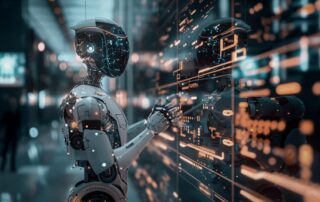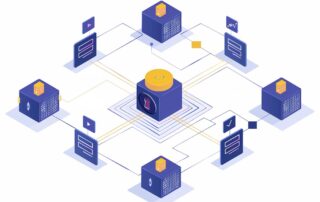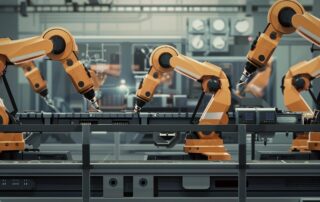AI Automation Overview
AI automation is the use of artificial intelligence to perform tasks or processes automatically. This can involve anything from simple, rule-based tasks to more complex activities that require analysis, decision-making, and learning over time. Automation tools are designed to analyze data, recognize patterns, and make decisions with minimal human intervention.
Businesses are increasingly turning to Automation to streamline operations, improve accuracy, and reduce operational costs. Whether it’s automating customer service responses, optimizing supply chains, or analyzing large datasets for decision-making, Automation is reshaping the landscape of business and innovation.
Table of Contents
- How AI Automation Works
- Benefits of Automation
- Industries Leveraging Automation
- Challenges in Automation
How AI Automation Works
Machine Learning in Automation
Machine learning (ML) is the backbone of many Automation systems. ML models can analyze large datasets and identify trends, which enables systems to make predictions and decisions without explicit programming. For instance, in customer service automation, ML models can determine the best responses to customer queries based on previous interactions.
Robotic Process Automation (RPA)
RPA involves the automation of repetitive, rule-based tasks that do not require decision-making. While RPA itself doesn’t “learn” from data, it often integrates with AI models to enhance its capabilities. For example, an AI-powered RPA system could handle tasks like invoice processing or customer onboarding with minimal errors.
Natural Language Processing (NLP)
NLP enables machines to understand, interpret, and generate human language. In Automation, NLP is critical in applications such as chatbots, virtual assistants, and automated content generation. NLP helps systems understand context, sentiment, and intent, making human-machine interactions more fluid and intuitive.
Benefits of Automation
Increased Efficiency
Automation reduces the need for human intervention in repetitive tasks, dramatically increasing speed and accuracy. Automated systems work 24/7 without fatigue, making them ideal for high-volume industries such as e-commerce and manufacturing.
Cost Savings
By reducing labor costs and improving efficiency, Automation often leads to substantial cost savings. According to a study by Accenture, companies that implement Automation can increase profitability by up to 38% by 2035.
Improved Decision-Making
Automation leverages data analytics to make more informed, real-time decisions. For example, in supply chain management, AI-driven systems can predict demand fluctuations, optimize inventory, and reduce delays, improving overall decision-making.
Industries Leveraging Automation
Healthcare
Automation in healthcare is revolutionizing patient care, diagnostics, and administrative workflows. AI-powered tools are being used for medical imaging, early disease detection, and personalized treatment plans, reducing the burden on healthcare professionals and improving patient outcomes.
Manufacturing
In the manufacturing sector, Automation plays a crucial role in predictive maintenance, quality control, and supply chain optimization. By automating these processes, manufacturers can minimize downtime, reduce waste, and improve overall productivity.
Customer Service
Automation is a game-changer in customer service. Chatbots and virtual assistants powered by AI can handle a wide range of customer queries, offering instant responses and freeing up human agents for more complex tasks. According to Gartner, by 2025, Automation will reduce the need for human customer support by 70%.
Challenges in Automation
While Automation offers numerous benefits, it also poses challenges such as data privacy concerns, workforce displacement, and the need for robust cybersecurity. Businesses must address these challenges to ensure a smooth transition to AI-driven operations.
![]()














